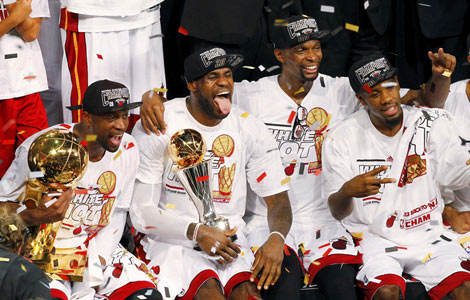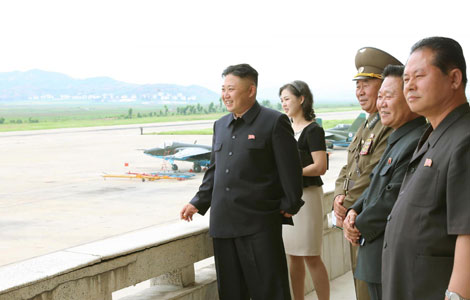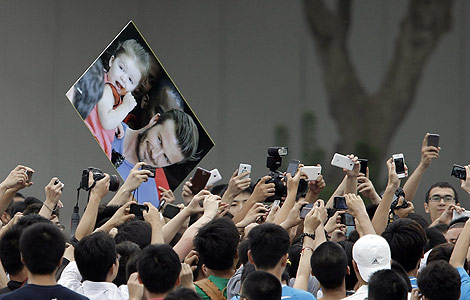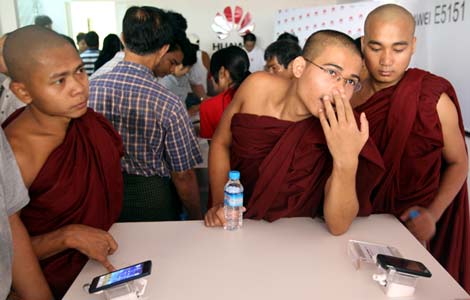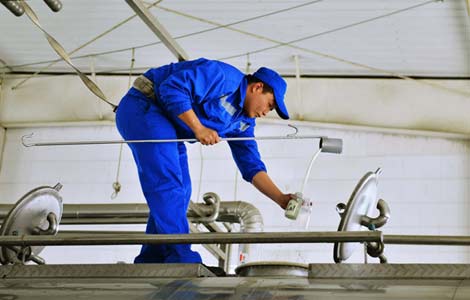Car change brings officials closer to people
Updated: 2013-06-21 07:05
By Zhu Yuan (China Daily)
|
||||||||
What kind of car -whether it's a domestic or foreign brand, luxurious or ordinary - an official rides in has long been of concern to the general public.
This is not just because they are paid for and maintained by taxpayers' money, but also because they epitomize the kind of outlook and lifestyle an official prefers. Almost all high-ranking officials prefer foreign brands, Audi in particular, which has been interpreted as their preference for the comfort those sedans offer and also the social status they symbolize.
Despite the 2002 Government Procurement Law that requires domestic brands be purchased for official use, very few officials who are entitled to official motor vehicles have opted for a domestic brand during the past decade.
However, the foreign minister's switch from a foreign brand to domestic one ushers in a new era. The Hongqi H7 has been designated the sedan for minister-level officials, which can be interpreted as a gesture toward the reversal of the unhealthy tendency that has prevailed among officials up to now.
For more than 2,000 years, official rank has long been associated with privileges. In ancient dynasties, officials rode in sedan chairs with the number of bearers determined by their rank. The higher the rank of the official, the more bearers there were. By counting the number of bearers, people could tell how high an official's rank was.
However, officials, no matter how high their position, are civil servants. This is what every Party member and government official is told and supposed to continually bear in mind so they can do a good job serving the people.
But in reality, the use of official cars by ranking officials has long been a source of public grievance. Their use of luxury limousines and their use of official vehicles for private purposes have long been seen as an abuse of power.
So little wonder that the foreign minister's use of a Chinese brand has become news.
Yet, an even better example is the Party secretary of Shenzhen in South China's Guangdong province, whose official vehicle is a China-made electric car. He is the only one of the city leaders who rides in such a green vehicle. By riding in such a low-carbon vehicle, he sets a good example for the city, where most taxis are electric cars. His use of an electric vehicle shows his awareness of the need to protect the environment.
People are concerned about what cars officials use and how much money is spent every year maintaining them, as they gauge how good a job an official will do in handling public affairs on their behalf by the kind of car they ride in.
They have no way of knowing how an official works, but by observing how they talk and what kind of car they ride in, they can guess how effectively the official will work in the interest of the general public. They can hardly expect an official who is supposed to be a civil servant but seeks comfort and luxury at the public expense to do a good job in the interests of the people.
The abuse of power and seeking luxury and comfort at the public expense by government and Party officials are acts that estrange the general public from the ruling Party.
That explains why Party leader Xi Jinping stressed in a speech on Tuesday that the unhealthy tendency toward formalism, bureaucracy and seeking comfort and luxury must be addressed. He said whether the Party can win support of the people is key to its destiny.
The change of official vehicles from foreign brands to a domestic one for minister-level officials may be just the beginning of a campaign to overhaul that unhealthy tendency within the Party and the government. Hopefully, the campaign will function as a wake-up call for officials to behave better and show more concern for the interests of the people.
The author is a senior writer with China Daily. E-mail: zhuyuan@chinadaily.com.cn
(China Daily USA 06/21/2013 page15)
Most Viewed
Editor's Picks

|

|

|

|

|

|
Today's Top News
China slams US human trafficking report
China urges resumption of six-party talks
SEC charges China-based firm with fraud
Bank of China denies monetary default report
Snowden's future hangs in balance
China reiterates support for the UN
Dairy measures start at source
June PMI signals weakness
US Weekly

|

|
